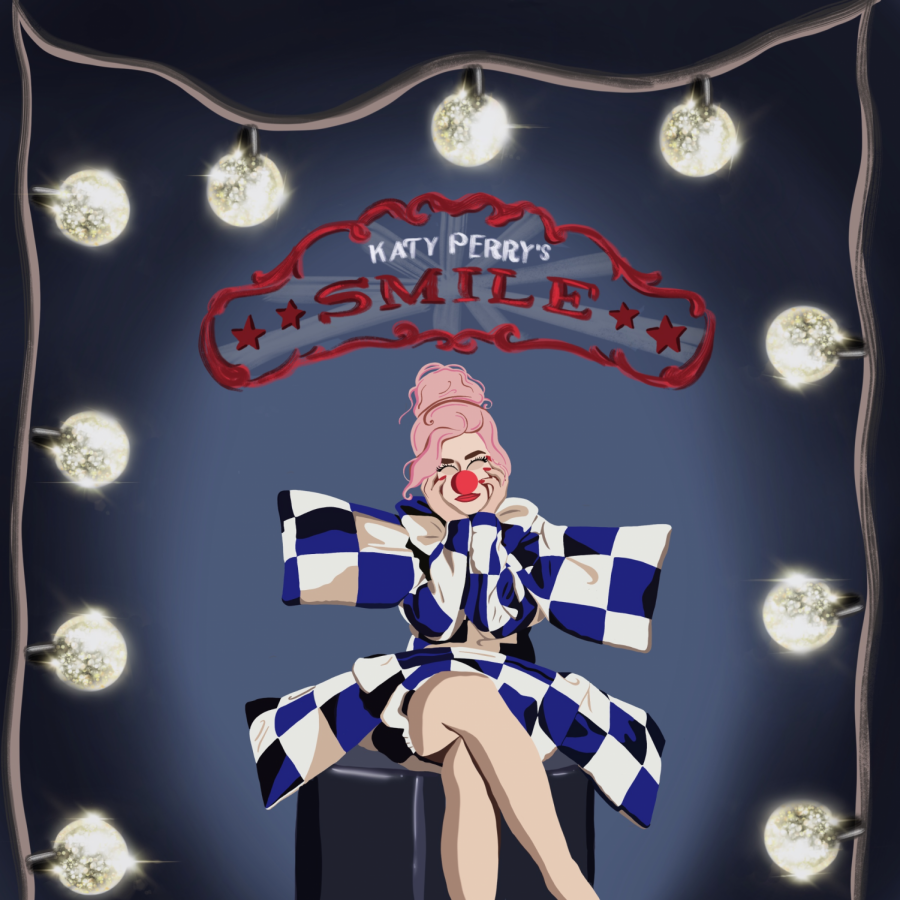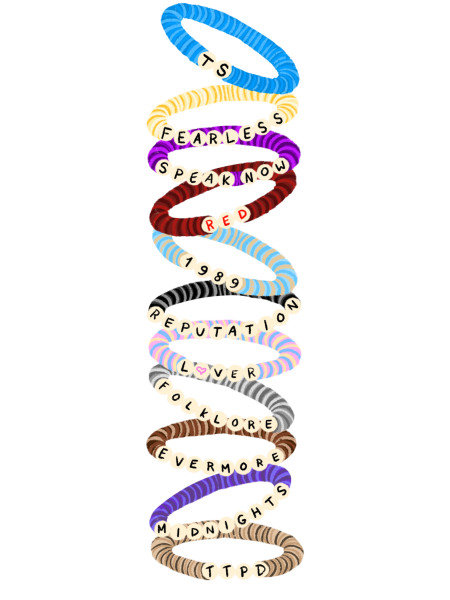Katy Perry’s ‘Smile’ returns
September 22, 2020
On Aug 28. American pop star, Katy Perry released her fifth studio album, “Smile.” After her fourth album, 2017’s “Witness” did not perform well and she faced other mental health issues, she wanted to come back with a bang, and “Smile” was the result.
The first track, “Never Really Over,” is my favorite. After listening to it, I had high hopes for the remainder of the album. “Never Really Over” stays true to Perry’s signature sound, and while it may not have the lasting power of many of her older singles, it is a strong track that has the potential to hold up in current pop music, or shall I say, Dua Lipa’s world. Zedd and Dreamlab’s production on the track sets it apart.
Although there is a decline in creativity and quality, “Cry About it Later,” continues the vibe and pace of the first track, and I can see it being a popular party track. (If parties ever come back.) Perry herself is listed last in the writing credits, and this is where I believe the disconnect between her and the lyrics begins. This lack of personalization bleeds into “Teary Eyes” as well. While I do not doubt that the message in these songs relates to her life, they feature a lot of predictable pop tropes and easy rhymes. I am always annoyed when I can predict the rhyme that will be made in the next line before I hear it, and that happened to me multiple times, not only in these songs, but throughout the album. I feel as if we have evolved past the point of “tonight I’m having fun” rhymed with “tonight I’m getting some,” being considered art. Lines such as “have you ever lied and just replied ‘I’m fine’” seem cliché, and closely mimic themes from “Save As Draft,” from Perry’s 2017 album “Witness.” Considering she made a point of wanting to improve from her last album, I question why this was deemed acceptable. But once again, Perry is listed last in the writing credits behind four others.
“Daisies” is your run-of-the-mill inspirational song. It is also her comeback single. It addresses the criticism she received for “Witness,” and preaches a message of remaining true to one’s self. The main line of the hook is, “I’ll never let them change me, until they cover me in daisies.” It hit its peak at number 40 on the charts in May, and has not received much radio play since.
“Daisies” opens a chapter of songs with this same inspirational “don’t give up, and don’t change” message. The first three songs seemed to address relationship struggles and general sadness, while hiding behind a party theme.
The next in what I consider to be the inspirational chapter is “Resilient.” Originally when listening to the album, I stated that I thought “Resilient” and “Daisies” were basically the same song, however, after repeated listens, I realized that “Resilient” is unique for its production and vocals. In my opinion, this one song could summarize the entire inspirational section of the album. I find it important to note here that Perry is listed first on the writing credits of this track. Sure, lines such as “I know there’s gotta be rain if I want the rainbows” stray from originality, but the authenticity is undeniably conveyed throughout her best vocal performance on the album.
“Not the End of the World” makes very little sense to me. However, I do like the line “you can make a wish, even on a satellite.” The track “Smile” is made unnecessary by the three other songs with similar messages. It serves as a good thematic track for the album in some ways, but I feel like it would have served better as the first track on the album or even the last, in order to begin or end the journey. The recurring lines of “I’m so thankful. Scratch that, baby, I’m grateful. Gotta say it’s really been a while, but now I got back that smile.,” could have just been one set of lyrics instead of being repeated throughout a three minute track.
The next chapter of “Smile” is the love chapter. It opens with “Champagne Problems,” another favorite track of mine. The premise of the song is that she and her lover have gotten through the hard part of their relationship and are now out of the woods to live a happy life together, which is summarized by the key line, “all we’ve got are champagne problems now.” “Champagne Problems” is followed by “Tucked,” another love song about wanting her significant other to be with her all the time. This track is not particularly good or bad. It does not stand out for me, but I don’t mind listening to it either.
I personally have a strong dislike for “Harleys in Hawaii,” but I do appreciate the personalization of it and the use of personal details that give it a sense of individuality. It has a good melody,despite the lyrics making my skin crawl, and the collaboration with Charlie Puth is evident in the sound and production quality.
“Only Love,” the next to last track, explains what Perry would do if she was running out of time in her life, which is timely in the wake of 2020’s long list of disasters. She lists apologies that she would make and the important things in life that she would focus on, singing, “let me leave this world with the hate behind me and take the love instead.”
Perry concludes her fifth album with the song “What Makes A Woman,” in which she highlights the individuality of women and talks about what makes her feel powerfully feminine. She says she “feels most beautiful doing what the… I want.” This song is Perry reclaiming her sense of identity that she felt like she lost while facing mental health struggles in the last few years.
My favorite thing, possibly about the entire album is that “Never Really Over” opens with the line, “I’m losing my self control,” and closes “What Makes a Woman” with “there it is, Katheryn.” It is evident that a message is conveyed throughout the album of her being in pain in the first “chapter”, regaining her smile in the second and embracing love in the end. If Perry were more confident in her own lyricism, without the help of co-writers who manufacture pop music, I believe this album would soar. Overall, it is not great, but if it brings back your smile, carry on.













